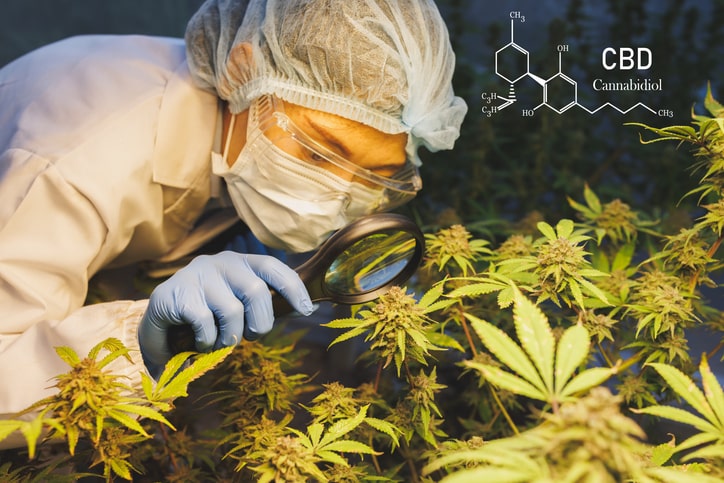Since passage of the 2018 Farm Bill, hemp businesses in California operated nearly regulation free. Then, in 2021, California regulators passed AB45 requiring registration by hemp businesses with a low barrier for entry and compliance consistent with the Farm Bill.
Over the past year, the California Legislature attempted several times to pass a bill that would regulate intoxicating hemp products, and they failed (i.e. AB 2223). AB45 has failed to meet adequate requirements for public safety, which has led to the proliferation of sales of intoxicating hemp products to the public and minors.
The hemp industry’s ability to skirt robust regulations created an omnipresent backlash against the unregulated intoxicating hemp loophole. In the Legislature’s absence and in the face of a declared “public health crisis”, Governor Gavin Newsom has now forced the hands of the industry with regulations passed by Executive Order.
Specifically, in early September 2024, Governor Gavin Newsom announced sweeping emergency regulations related to the “Serving Size, Age, and Intoxicating Cannabinoids for Industrial Hemp” (the “Emergency Rules”), which went into effect immediately.
These Emergency Rules brought shockwaves to the hemp industry by banning THC in any detectable quantity from consumable hemp products, and prohibiting the sale of all consumable hemp products to any individual under the age of 21.
To be clear, these regulations do not apply to hemp flower, only consumable hemp products. Consumable hemp products include beverages, food, and dietary products.
Finding of Emergency & Therefore Immediately Effective
Before the Emergency Rules, California industrial hemp products could not include total THC of more than 0.3% (delta-8 THC, delta-9 THC, delta-10 THC). Industrial hemp products also could not include THC isolate as an added ingredient nor cannabinoids produced through chemical synthesis.
The Emergency Rules additional identified cannabinoids that share similar chemical structures to cannabinoids known to cause intoxication and similarly hold the capacity to cause intoxication at various levels.
The California Department of Public Health (“CDPH”) stated that these additionally identified cannabinoids have been found to cause serious side effects including seizures, organ damage, hallucinations, paranoia, vomiting, agitation, and in extreme cases even death – all signs of acute intoxication. Studies have shown that consumption of such products during the ongoing brain development of young adults can impact cognitive functions, memory, and decision-making abilities.
Furthermore, the Governor declared that there was a correlation with these unregulated intoxicating hemp products and a statewide rise in hospitalizations, poisoning, and increased emergency department visits. Governor Newsom’s office has stated that these regulations are necessary to protect the public health of the youth of California, and to mitigate the risk of adverse health effects that are exacerbated by the improper regulation of such products and thus the Emergency exists.
Per the Emergency Rules, retailers in the State of California must immediately implement all applicable restrictions and remove all consumable hemp products containing any levels of detectable THC from their shelves.
State and local health regulators, including the CDPH, the Department of Cannabis Control (“DCC”), the California Department of Alcoholic Beverage Control (“ABC”), the California Department of Tax and Fee Administration (“CDTFA”), along with state and local law enforcement officials, have already begun enforcement action.
Violations of the current regulations are misdemeanors and may subject a violator to fines and/or imprisonment. If you are a licensed hemp business found selling industrial hemp products that violate the current regulations, the CDPH and the ABC may pursue administrative disciplinary action, which may result in fines and suspension or revocation of their license.
Three Big Changes Hemp Operators Need to Know
- Prohibition on Detectable THC.
The Emergency Regulations mandate a prohibition on commercial activities for “industrial hemp final form food products intended for human consumption including food, food additives, beverages, and dietary supplements with any level of THC above 0%.
This prohibition was the most consequential change for the California hemp industry since the Farm Bill and already dealt a blow to a segment of the hemp industry that was sourcing and selling hemp products with measurable levels of THC.
Additionally, the scope of what is considered an intoxicating cannabinoid has been expanded within the definition of THC or “THC or comparable cannabinoid.”
- Serving Size Limitations.
Serving and package sizes for industrial hemp final form food products intended for human consumption are now severely limited. Final form products can contain no more than five servings per package. California further prescribed that serving and package sizes must be determined using the same federal standards as non-industrial hemp food products.
- “Age Gating” Requirements
Retailers must implement “age gating” requirements for industrial hemp final form food products along with any industrial hemp extract sold to prohibit anyone under the age of 21 from purchasing hemp products in the state of California.
California’s Robust Safety Standards for Hemp Products are Further Expanded, At the Cost of Licensed Operators
These regulations are extremely stifling to operators, and have decimated a segment of the California hemp industry. Licensed hemp operators who were once able to produce and sell certain products have now been told those same products must be immediately destroyed, and can no longer even be warehoused within the state.
Any cannabis (marijuana and/or hemp) operator in the state of California knows that they must always be prepared to pivot their business (and their sellable products) to adjust to ever changing regulations. However, this outright ban just does not seem fair or equitable to operators who could have continued selling their products but with better regulations. California has largely become an inhospitable place for cannabis and hemp businesses, and that is a real tragedy.
If you have questions about how the Emergency Rules impact your California business, contact our skilled cannabis, hemp, and psychedelics business law trusted legal counsel at Manzuri Law today to learn more about your legal rights and options.

